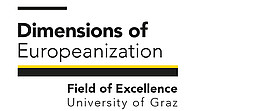Research
Our project builds on the understanding that Europeanization of SEE as empirical phenomena is seriously under-researched, as well as the fact that Europeanization as an analytical approach in its currently dominant form is narrow and often based on problematic normative assumptions. Hence, the project aims to produce new knowledge on Europeanization of SEE in diachronic and synchronic perspectives as well as to establish new comprehensive theoretical tools for a critical-constructivist turn in Europeanization research in general, and particularly in Europeanization research related to SEE. Furthermore, this project is based on the understanding that South East European Studies as well as Area Studies generally have often very limited conceptual and empirical understanding of “area” e.g. they construct a region as a container area that is allegedly unique, separate, different, and a “peripheral” “other.” This project intends to find out how these challenges can be cognitively, theoretically, and empirically overcome. That is, the project aims to produce new knowledge and understanding of area and region beyond methodological regionalism and nationalism that conceptualizes the area and region of SEE as an integral part of the (at least European) world.
The following set of research question clusters serve as guidelines to fulfil these research aims:
1. Who creates the concept(s) of Europe? Who defines what Europe, Europeans, Europeanness, and European values are? How and why is this done? How do these definitions change in time and social space regarding Europe and SEE and why? What are the characteristics of liberal and (currently more influential) conservative definitions of and attributions to “visions of Europe,” “Europeanness,” and “European values” in SEE countries and in other European states? What are the characteristics of social conflicts and negotiations over definitions of “Europe”, “Europeanness,” and “European values”?
2. Which structures and processes of the past can be understood as Europeanization of SEE, and why? What assumptions do we have when approaching/researching them, and how can they be examined? How do the past phenomena and processes of Europeanization influence current discourses and practices of Europeanization in SEE? Who invoked the reference area of Europe? How, when, and for what reasons? What result did this have, i.e. when did Europe become a historical resource, and when not?
3. What are the characteristics of historic and current relations between nationalism and Europeanization regarding SEE? How did (and continue to do) these two allegedly mutually antithetic and conflicting practices and discourses co-produce and stabilize each other?
4. How can the history and present of SEE and its relations to the rest of Europe be theoretically conceptualized and empirically studied, and how have they advanced the EU agenda? What have been the main countervailing forces to Europeanization, supporting either alternative models or centers of power, and what explains their societal, political, ideological and economic strengths and weaknesses over time?
5. How and why are processes of Europeanization formed and communicated, and which mechanisms of formulating, transmitting, and transforming these concepts exist in a long-term perspective, linking pre-EU processes of transformation to the experience of EU-led Europeanization? How and why do the transformation, modification, and rejections of models of social, economic, and political organization in a particular region, such as SEE, reflect on the a) transferability of these models and b) hegemonic power of these models?
6. How and why are regions constructed through processes of Europeanization as relational spaces, analytical categories, and symbolic fields that define center-periphery relations, focusing on SEE and its relationships to “Europe”? Which social fields of SEE were/are encompassed by Europeanization, and which social fields were not influenced by Europeanization? What are the markers of linkages and influence on individual social fields within social formations in SEE?
7. Whose interests does the Europeanization of SEE serve, how and why? How does Europeanization function as an element of securing and reproducing political, ideological, and economic power, rule, and interests inside and outside of the region? Whose interests are favored, whose are marginalized, and how? What are the social impacts of power asymmetries?
Speaker
Florian Bieber
Zentrum für Südosteuropastudien
Schubertstraße 21/I, 8010 Graz




